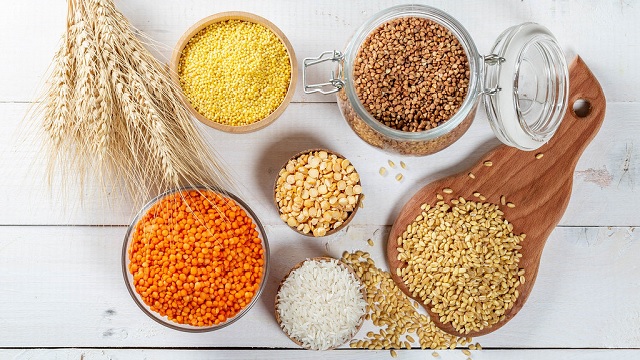Health benefits of pulses in your diet
The health benefits of pulses are proven due to their protein and fiber content and all vital vitamins and minerals.
We have been living with pulses for ages, and they are the most broadly used foods throughout the world. With a variety of pulses around us, they have particular nutritional importance. The health benefits of pulses are proven due to their protein and fiber content and all vital vitamins and minerals, such as iron, zinc, folate, and magnesium.
A typical Indian diet includes pulses, grains, and vegetables, making it a balanced diet. Pulses serve the most of the nutrition with this diet. To get the best health benefits of pulses, you can just start adding more of them to your diet actively. Pulses like lentils, black pulses, kidney beans, and chickpeas have numerous benefits. A healthy body and a happier mind are just some of the health benefits of pulses.
Pulses refer to the dry, edible seeds of the pod. They belong to the legume family (legumes are plants that usually grow into pods). Pulses include beans, lentils, peas and other seeds in beans or lentils.
1. Pulses are a great source of vitamins and minerals
By consuming pulses and dals daily, you can get your required quota of essential vitamins and minerals. Pulses are a great source of fibre, calcium, potassium, zinc, iron, magnesium and folate. They are also abundant in Vitamin B, thiamine and niacin. Our body needs these vitamins and minerals to function efficiently.
2. Pulses are a rich source of proteins
Pulses are high on amino acids, which make them a rich source of proteins. Proteins play a vital role in enhancing our body’s overall strength and improving its repairing and maintenance power. Hence, if you engage in a lot of physical activity daily, adding pulses to your diet can be very beneficial. You can also combine dairy products, grains and nuts in your meal to ensure the optimum dose of proteins in your body.
3. Pulses possess antioxidant effects
Pulses, beans, and lentils are abundant in polyphenols, making them good antioxidants. Antioxidants are necessary to protect your body cells against free radicals produced as a by-product during metabolism. In the absence of antioxidants, your body may become prone to ill health. This makes the consumption of lentils and pulses all the more critical.
4. Pulses are good for the heart
One of the most primary health benefits of beans and pulses is keeping your heart in good shape. Consumption of pulses reduces your body’s cholesterol level and thus helps improve your heart’s health. Also, pulses usually contain high potassium and low sodium, which aids in regulating blood pressure.
5. Pulses reduce the risk of diabetes
Pulses and legumes are ranked lower in the glycemic index, meaning they cause a minimal rise in your blood sugar level. Therefore, people who consume pulses regularly may have a lower chance of getting diabetes. And in case you already have diabetes, you can add pulses to your daily diet to regulate blood sugar level.
6. Pulses are a good source of folate
Pulses, beans, and lentils are a rich folate source as they contain Vitamin B, which helps produce new cells. Hence, eating pulses can be very good during rapid growth stages, such as infancy and pregnancy. Growing children and pregnant women should thus include a fair amount of pulses in their daily diet.
7. Pulses may reduce the risk of cancer
As mentioned above, pulses, beans, and lentils act as antioxidants and anti-inflammatory agents, reducing cancer risk. Lentils also contain an element known as selenium, which decreases the rate at which a tumour grows. They also boost immunity and stimulate T cells’ production, which helps in fighting diseases.
The protein of pulses is high in lysine and low in sulfur-containing amino acids. Grains’ protein is low in lysine but high in sulfur-containing amino acids. Combining them provides a higher protein quality. This means that the body needs less protein to fulfil its protein needs, which improves nutrition, especially in low-income communities, where the availability of other sources of protein such as animal protein are limited. The combination also contributes to a balanced diet.




 Kalinga AI
Kalinga AI